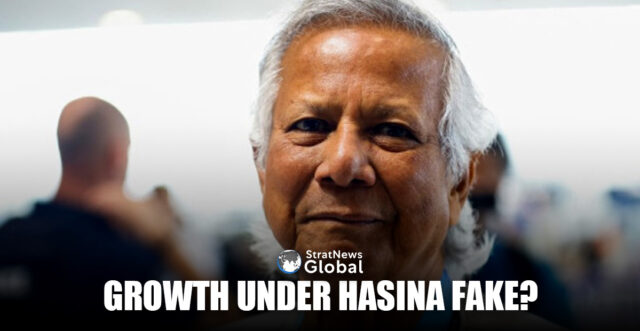The head of Bangladesh’s interim government, Nobel laureate Muhammad Yunus,
said on Thursday that his country’s high growth under ousted Prime Minister Sheikh Hasina was “fake” and faulted the world for not questioning what he said was her corruption.
Yunus, 84, an economist and the 2006 Nobel Peace Prize winner, took charge of the South Asian country’s interim government in August after Hasina was forced to flee to
neighbouring India following weeks of violent protests.
Hasina has been credited with turning around the economy and the country’s massive garments industry during her 15 years in power, although critics have accused her of human rights violations and suppressing free speech and dissent.
Hasina, who had ruled Bangladesh since 2009, is being investigated there on suspicion of crimes against humanity, genocide, murder, corruption and money laundering and Dhaka has asked New Delhi to extradite her.
Hasina and her party deny wrongdoing, while New Delhi has not responded to the extradition request.
“She was in Davos telling everybody how to run a country. Nobody questioned that,” Yunus told Reuters in an interview on the sidelines of the World Economic Forum’s annual meeting in the Swiss Alpine resort. “That’s not a good world system at all.”
“The whole world is responsible for making that happen. So that’s a good lesson for the world,” he said. “She said, our growth rate surpasses everybody else. Fake growth rate,
completely.”
Yunus did not elaborate on why he thought that growth was fake, but went on to stress the importance of broad-based and inclusive growth, and the need to reduce wealth inequality.
Annual growth in the Muslim-majority country of 170 million people accelerated to nearly 8% in the financial year 2017/18, compared with about 5% when Hasina took over in 2009, before the impact of COVID-19 and the war in Ukraine pulled it down.
In 2023, the World Bank described Bangladesh as one of the world’s fastest-growing economies.
“Since its independence in 1971, Bangladesh has transformed from one of the poorest countries to achieving lower-middle income status in 2015,” it said.
With Reuters inputs
Thirty eight years in journalism, widely travelled, history buff with a preference for Old Monk Rum. Current interest/focus spans China, Technology and Trade. Recent reads: Steven Colls Directorate S and Alexander Frater's Chasing the Monsoon. Netflix/Prime video junkie. Loves animal videos on Facebook. Reluctant tweeter.





